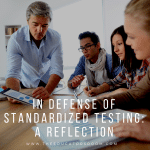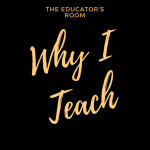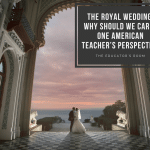As young Americans start back to school, it is a good time to note that most Americans are largely ignorant—ignorant of their heritage, ignorant of their Constitution, ignorant of what actually “unites” the United States of America.
A variety of surveys from the past decade about Americans’ civic knowledge, or lack thereof, acts as a dispiriting smorgasbord from which to choose the most depressing morsel of ignorance. Consider these facts:
- Fewer than half of all Americans can name the three branches of the federal government.
- 10% of Americans believe “Judge Judy” sits on the Supreme Court.
- Almost half of all college students are ignorant of the term length for House and Senate members.
- 30% of elected leaders were not aware that “life, liberty, and the pursuit of happiness” are rights listed in the Declaration of Independence.
If you think these facts are unconnected to the almost universal demoralization of the body politic about the current state of our political discourse, then you are naive in the extreme. And trust me, I would know. I have spent my entire adult life, two decades now and counting, in high school and university classrooms trying to teach American civics to young people from all walks of life.
The students I teach are almost universally bright and good-natured. And they certainly value education, but not in the way it was originally understood by early Americans who were keenly aware that democratic self-government was an experiment with no guarantee of success. It was not a rhetorical question when Alexander Hamilton asked in Federalist Paper #1 if “societies of men are really capable or not of establishing good government from reflection and choice?”
In an educational era defined by endless careerism, a robust emphasis on STEM, and unapologetic commercial pragmatism, education is no longer about cultivating the moral, intellectual, and political virtues that are necessary to facilitate the “reflection and choice” Hamilton knew would rock the cradle of a burgeoning American democracy.
Today, there is a vibrant commercial aim to American education, but its civic esprit is all but dead.
Elite universities are of little help in training tomorrow’s leaders and citizens. A 2016 study by ACTA (American Council of Trustees and Alumni) found that of the top 25 liberal arts colleges in the country, only seven require history majors to take a course focusing on American history. Of the top 25 national universities (think Stanford, the Ivy League, etc.) only four require their history majors to complete a class on United States history.
But here’s the rub: while our founding documents eloquently make the case that our rights and freedoms are derived from Nature itself, there is nothing “natural” about the democratic system our nation chose as its vehicle for securing these rights and liberties. In fact, a republic asks a lot of its citizens if it is to “establish good government.” It requires, at the very least, Americans to feel, what Noah Webster called, “an inviolable attachment to their own country.”
But what is it that yokes us together? What is the “unum” in a nation that celebrates E Pluribus Unum? What is our civic glue and national adhesive? What is it that makes us one nation, “We THE People?”
The answer lies in education itself, in learning about our founding documents, appreciating the universalism of liberal democracy, understanding what constitutional self-government looks like, studying the men and women of American history who fought tooth and nail for civil rights, and appreciating how complex majority rule is supposed to operate.
Because if citizens are not united by what Lincoln called “a proposition,” they will unite themselves in decidedly un-American ways—perhaps by deciding they have no special allegiance to their nation. Perhaps their fidelity will move towards a race, a specific religious group, a geographic region, a narrow political ideology. Sound familiar?
Yet robust knowledge of American civics yields two tonics for the dysfunction of the modern political age: first, it makes us less tolerant of elected officials who do not uphold democratic norms and constitutional values. Second, and more importantly, it encourages Americans with different political perspectives to understand that what unites them is much stronger than what divides them.
[bctt tweet=”It encourages Americans with different political perspectives to understand that what unites them is much stronger than what divides them.” username=””]
Are we truly more divided today than Federalists and Democratic-Republicans were in the early 1800’s? After all, Jefferson compromised with his nemesis, Alexander Hamilton, so that the nation had both a National Bank and a more Southern national capital. Are we more divided than the North and South of the 1850’s? Daniel Webster sacrificed what was arguably the finest senatorial career in American history in order to support Henry Clay’s Compromise of 1850 to avoid Civil War itself. John Quincy Adams accepted the demotion from President to congressman, just so he could have a national debate on anti-slavery petitions.
These accords of progress were possible because leaders and citizens understood that tribalism results in dysfunction, that compromise, census, and coalition-building are the highest achievements of leaders in a diverse constitutional republic.
Try telling this to leaders and citizens today who literally see the other party as “un-American” or who describe themselves, not as members of the loyal opposition, but as a part of “the resistance.”
Deep down in our political DNA, we Americans know that political leaders, and everyday citizens for that matter, should not be national enemies. That is why we love to study the renewed friendship of John Adams and Thomas Jefferson in their later years. It is why we witness the best of America in the friendship between George H.W. Bush and Bill Clinton. It is why we mistily recall that Democratic Speaker Tip O’Neill went to the hospital bed of Republican President Ronald Reagan in the aftermath of an assassination attempt to pray for Reagan’s recovery.
We do not have a monarch or a national church or a common racial ancestry to unite this country. We are not subjects of a king or members of narrow religious sects or racial tribes. Political coercion and racial differences are expedient bonds, yes, but they do not cultivate the habits of a genuinely democratic citizenry. For that, we must learn. We must study. We must go to school.
Let’s begin anew.






